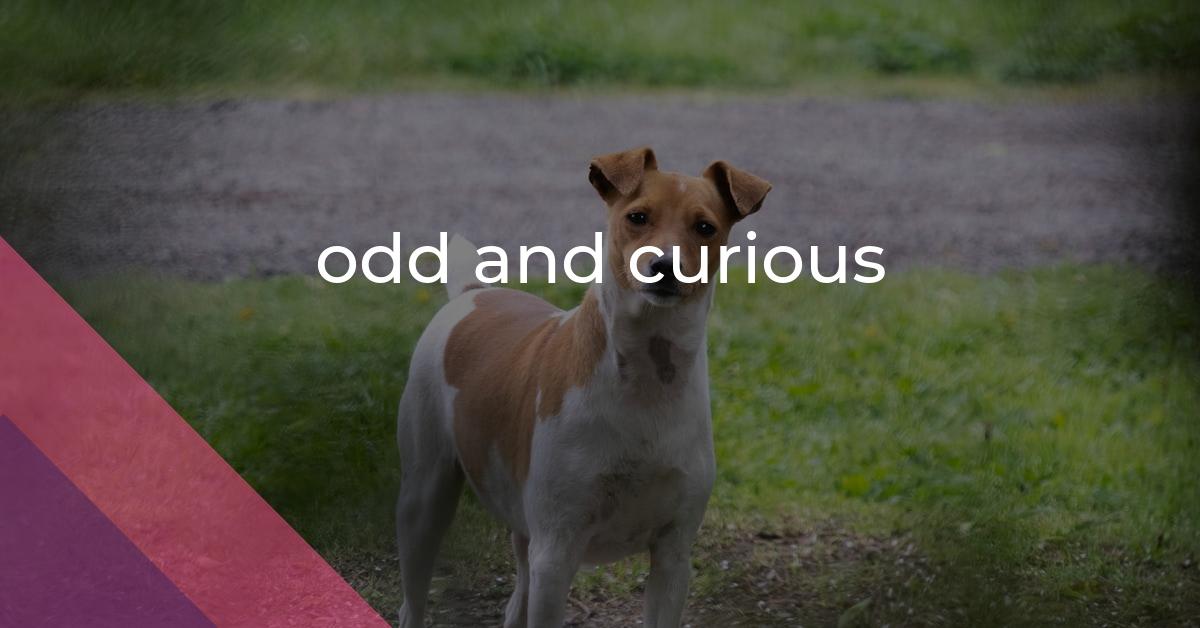odd and curious: Idiom Meaning and Origin
What does ‘odd and curious’ mean?
The idiom "odd and curious" is used to describe something that is strange, unusual, or peculiar. It implies a sense of intrigue or fascination about the subject.

Idiom Explorer
An idiom often used to describe a person who is disliked or considered bad, with negative qualities or behavior.
The idiom "riddle wrapped in an enigma" means something or someone that is difficult to understand or explain because of their mysterious or complex nature.
An idiom used to describe someone or something that is highly unusual or unique; as rare as a rare animal.
The idiom "raise eyebrows" means to cause surprise, curiosity, or disapproval. It suggests that something is unexpected or unusual, often leading others to question or doubt the situation or action.
The idiom "quelle surprise" is a sarcastic remark used to express a lack of surprise or to mock something that is expected or predictable.
The idiom "queer fish" is used to describe someone who is strange, eccentric, or unconventional.
The idiom "out of the ordinary" means something or someone that is not usual or typical. It refers to a deviation from what is considered normal or expected.
The idiom "out of character" means behaving in a way that is not typical or usual for a person, often surprising others due to the deviation from their usual behavior.
The idiom "or something" is used to suggest an uncertainty or vagueness. It implies that there may be additional information or options available, but the speaker is unsure or does not want to specify them.
The idiom "once in a while" means occasionally or infrequently.
Unveiling Enigmatic Quirks
In everyday conversation and writing, the idiom "odd and curious" is commonly used to describe something that is unusual or peculiar. Its structure is simple, consisting of the adjectives "odd" and "curious" used together to enhance the emphasis on the unusual nature of the subject. The word "odd" refers to something that is strange or peculiar, while "curious" suggests something that arouses interest or a desire to learn more.
The idiom "odd and curious" can be found in various contexts, including everyday conversations, literature, and even scientific or academic discussions. Its versatility allows for its integration into different domains, despite its unclear origins. When speakers or writers describe something as odd and curious, their intention is to engage the audience's attention and evoke a sense of intrigue. By deviating from the expected or conventional, the subject prompts individuals to pay closer attention and explore its nuances.
The charm of the idiom "odd and curious" lies in its ability to foster a sense of exploration and wonder. Although rooted in the English language, this idiom opens the door to countless interpretations and applications. Whether evoking a sense of fascination or encouraging further investigation, it encapsulates the allure of the unknown, the unconventional, and the fascinating.
In addition to the idiom "odd and curious," there are other related idioms that convey similar meanings. One such idiom is "odd duck."
The idiom "odd duck" is used to describe someone or something that is unique or different from the norm. It suggests that the individual or object in question stands out or doesn't quite fit in with the rest. This idiom adds another layer of peculiarity to the concept of "odd and curious," emphasizing the distinctiveness or eccentricity of the subject. Just as an odd duck captures attention due to its unusual behavior, something described as odd and curious piques our interest due to its unconventional nature.
Another related idiom that shares a connection with "odd and curious" is "odd fish."
The idiom "odd fish" is employed to describe someone who is eccentric, strange, or unconventional. It implies that the individual possesses peculiar characteristics or behaves in an unusual manner. Similarly, when we describe something as odd and curious, we are highlighting its deviation from the expected or conventional. The idiom "odd fish" complements "odd and curious" by emphasizing the uniqueness or peculiar nature of the subject, further inviting intrigue and exploration.
As we delve deeper into the world of idioms, we encounter the phrase "curiouser and curiouser."
"Curiouser and curiouser" is a phrase derived from Lewis Carroll's "Alice's Adventures in Wonderland." It is used by the character Alice to express her fascination and curiosity regarding the strange and nonsensical events unfolding around her. The repetition of the word "curiouser" adds emphasis and intensifies the reader's sense of curiosity. This phrase aligns with the idea of "odd and curious" as it evokes a similar sense of wonder and desire to explore the unknown.
The idioms "odd duck," "odd fish," and "curiouser and curiouser" all enhance the meaning of "odd and curious" by adding unique nuances and emphasizing the unconventional nature of the subject. They contribute to the overall richness and versatility of the English language, allowing for creative expression and engaging storytelling.
Example usage
Examples of how the idiom "odd and curious" can be used in a sentence:
- He was an odd and curious fellow, always asking unusual questions and seeking out strange information.
- The antique shop had a collection of odd and curious objects, such as a two-headed taxidermy animal and a jar filled with pickled creatures.
- Her behavior at the party was odd and curious, as she spent the entire evening observing people from a distance and taking notes.
More "Miscellaneous" idioms



